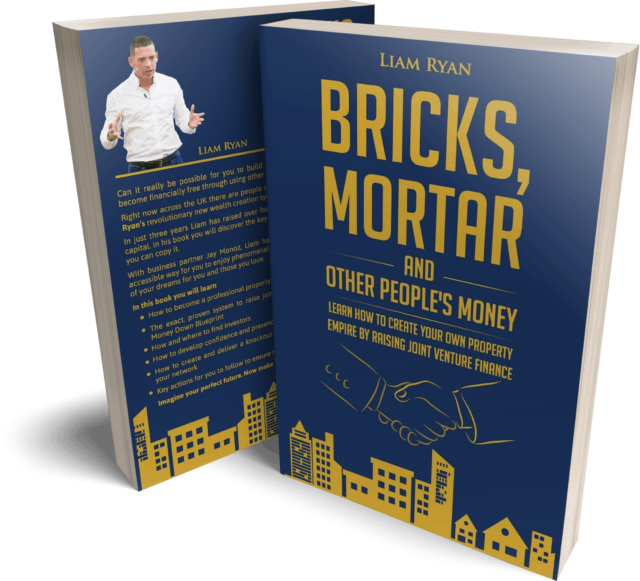Things to consider before Investing in London Commercial Property in 2025

Investing in the commercial property market in London in 2024 sounds tempting for property investors, but is it the right choice? Brexit, the pandemic, and other factors have affected a significant shift in commercial property values but is there still enough demand for commercial property in London to make investment worthwhile? Join me, Liam J Ryan, as I take an in-depth look at the London commercial property market below.
Table of Contents
ToggleConsiderations before Investing
Market Conditions
So far, Q1 of 2024 has shown some increased growth in the London commercial property market when compared to the previous 18 months. Collier’s Real Estate Investment Forecast anticipates an increase in the value of commercial properties, especially high-street retail units and industrial units in Central London. Rental growth is also predicted to continue rising, a good sign for property investors.
Collier’s forecast also predicts that interest rates and inflation will fall slightly and then stabilise by the end of the year, and total returns on investments could rise by 10.2% in 2024. This is good news for property investors, although we should continue to keep a close eye on economic conditions and interest rates throughout the year.
Investment Goals & Risk Tolerance
Before you invest, it’s a good idea to define your investment goals – consider your desired returns and plan a timeline for investment that aligns with your overall financial objectives. Decide on your risk tolerance, which is the amount of loss you are willing to accept when investing. This depends on your financial situation, age, investment experience, and other financial commitments. If you are seeking high returns, you may need to accept higher levels of risk, but if you would rather prioritise stability, consider opting for lower-risk investments.
Financing Options
There are several options available for financing your investment in London commercial property, including:
Commercial Mortgages
Banks and other financial institutions issue commercial mortgages to allow investors to purchase commercial properties. Commercial mortgages often require a larger deposit of 20-40% of the property value, have higher interest rates than residential mortgages, and have shorter repayment terms. They do however offer better interest rates than a regular business loan.
Bridge Finance
A bridging loan is a short-term loan that gives investors the chance to quickly raise the capital needed to invest in commercial property. Bridging loans often have higher interest rates than traditional loans, but are still very competitive when compared to other short-term loans. Commercial bridging loans are usually paid back in full within 12 months so you should make an exit plan to ensure you can pay back the loan in this relatively short time.
Secured Loans
A secured loan is one that uses the investment property as collateral much like a mortgage does. They offer flexible terms of up to 35 years and lower interest rates than unsecured loans.
Location
Despite the increased prevalence of remote and hybrid working, prime office space continues to be in demand in central and West London, as well as high-street retail spaces in high-traffic locations. Warehousing spaces on industrial estates with direct access to the motorways and ring roads will always be in high demand. Office spaces in Canary Wharf, the City of London and the West End are usually in high demand and command the highest rental yields.
Post-Pandemic Impact on Commercial Property
The 2020 pandemic saw many commercial properties sit empty as workers were furloughed or switched to working from home. Businesses of all sizes saw the benefits of their employees working from home, i.e. no building rental or the costs of running an office, as well as the chance to recruit from a larger talent pool, and made the switch to permanent remote or hybrid working. This has continued to affect the commercial property market worldwide, although many industries rely on having premises to operate from, e.g. manufacturing, high-street retail, healthcare, hospitality and more, so commercial property continues to be a viable investment option.
Best Types of Commercial Property Options in London in 2024
Property Types
Logistics and industrial are the top sectors for commercial property investment in London and internationally in 2024, thanks to growing consumer demands for faster delivery of products. This is likely to be an investment that yields long-term rewards and is ideal for those who can wait for a return on their investment. Newly built or refurbished office spaces that have a high energy rating of EPC A or B will be in high demand, due to corporate ESG objectives and consumer demands for more sustainability. Retail, hospitality and leisure spaces will also be in high demand, especially those in prime locations that get a lot of footfall from locals and tourists in Central London.
Commercial Property ROI Trends in London
Historical Data
London has been a global financial hub and contributor to the UK’s economy for many years and banking and finance companies account for a third of newly occupied office space. Despite London’s enduring attractiveness, external factors such as Brexit, the pandemic, and other recent economic challenges have impacted the sector. The London commercial property market peaked in 2017 and has since declined, only beginning to recover in 2022.
In 2023, offices in London’s West End boasted an average yield of 4%, while provincial offices and those in the South East offered higher yields at 5.75% and 6.25%, respectively. In 2023, investment in office real estate declined for the third consecutive year thanks to the prevalence of remote and hybrid work.
Risks and Uncertainties
Commercial property investment produces higher yields than residential property investment, although it often requires a higher initial investment. As London continues to adapt to changing circumstances, investors must stay vigilant to capitalise on emerging opportunities while mitigating potential risks. Some of these risks can be mitigated with these 3 strategies:
- Diversification: Diversifying investments across different types of properties, locations and sectors can help to minimise the risk of downturns in any specific areas and help spread the risk across different investments.
- Planning Ahead: Make sure you have a solid financial plan in place that includes contingencies for any potential downturns and other risks. Consider setting aside emergency funds for unexpected costs.
- Stay Informed: Keep up to date on market trends, economic changes and any changes in local property regulations that can impact your investments. Keeping an eye on the market and maintaining relationships with real estate agents and other experts in the field can allow you to adjust your investment strategies proactively.
Importance of Due Diligence
Before making any investment decisions, take the time to do your due diligence, extensively researching the area and property type you plan to invest in. Take a look at similar properties in the area, the local market conditions, and any potential risks before making the leap to investment
Are you interested in investing in commercial property? Why not join us for one of our property events such as the FREE Commercial Conversion Conference or the incredibly popular Property Investment Summit?
You May Also Be Interested In...

Planning Permission Loopholes You Should Know About
Discover UK planning permission loopholes, permitted development rights and when you can extend, convert or

How the Bank of England Base Rate Affects Your Buy-to-Let Mortgage
Learn what the Bank of England base rate is, how it’s set, and how changes

Understanding the Housing Health and Safety Rating System (HHSRS)
Guide to understanding the HHSRS and why it matters for landlords and property professionals.
Featured Property Investment Events & Courses
The Property Deal Packaging Summit
The Property Millionaire Bootcamp
The Serviced Accommodation Bootcamp





